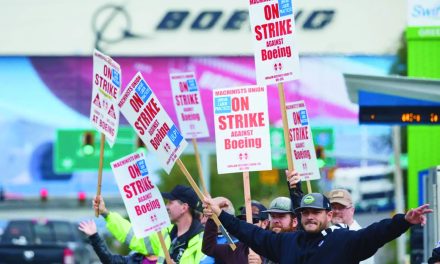“I always feel like somebody’s watching me, and I have no privacy.”
Yes, those are the lyrics to the popular 80s song by Rockwell, Somebody’s Watching Me. But they are also the sentiments of some 41 percent of employees working from home these days. According to a report by ExpressVPN, teleworkers surveyed say they are “constantly wondering if they’re being watched.” And 36 percent said they feel increased pressure to work extended hours.
The majority, 56 percent of employees, said they feel stress and anxiety about their employer surveilling their communications. And 32 percent reported taking fewer breaks because of that stress.
The study, commissioned by ExpressVPN in collaboration with Pollfish, surveyed 2,000 employers and 2,000 employees who work remotely or in a hybrid capacity about how employer surveillance impacted employees.
The survey revealed that surveillance of employees has rapidly increased since the onset of the pandemic, with 78 percent of companies reporting they use software to track employee performance and/or online activity. More than half of those companies implemented the software in the last six months.
Of that 78 percent, 90 percent report actively tracking the amount of time spent by employees doing work versus time spent on activities unrelated to work.
The report shows a significant gap between what employers are actively monitoring and what employees think their employers are monitoring, indicating many are woefully unaware of its true extent. Employers reported they are surveilling employee time spent on websites and apps using screen monitoring, screen captures, and keystroke monitoring. They are also monitoring chats and message logs, inbound and outbound emails, call transcriptions, and productive and unproductive hours logged. ExpressVPN says one in six employees are unaware that they are being monitored at all.
Do employers have to tell employees they are being watched?
According to workplacefairness.org, the answer is no. The legal advice website says employers can legally monitor almost anything an employee does at work as long as the reason for monitoring is important enough to the business.
Employers can install video cameras, read mail and email, monitor phone and computer usage, use GPS tracking, and more.
According to a Harvard Business Review 2017 report on employee surveillance, only two states—Delaware and Connecticut—had laws requiring companies to inform workers that they will monitor them. On November 8, New York became the third state to require private employers provide notice of employer monitoring.
Labor Laws weren’t Written for the Teleworking Workforce
When employees go into the office, they understand that they give up a degree of personal privacy. But what about when our homes become our workplaces? Do workers have any expectations of privacy anymore? The most recent piece of legislation regarding electronic communications and privacy was passed in 1986 and doesn’t address most of the technology and communications in use today. The Electronic Communications Privacy Act does restrict employers from listening in on private conversations but contains considerable loopholes in the form of a “business purpose exception” that excuses surveillance done with legitimate business purposes.
Those loopholes could allow an employer to see personal emails or social media communications. It could even give legal cover to an employer if the surveillance software recorded you changing in your bedroom or visiting a health or pregnancy website.
But unionized employees could gain additional protection through collective bargaining agreements—essentially using a union contract to create privacy rights.
Steven Hill, a journalist for In These Times addressed the issue last year writing, “U.S. labor unions have been slow to advocate for updating these outdated laws. One union, the United Electrical, Radio, and Machine Workers of America, has been working to blunt the worst of the abuses.”
In referencing the UE, Hill is referring to the model policy on workplace surveillance the union has posted on its website for its locals to use in collective bargaining.
The policy, written by The National Workrights Institute, addresses the use of personal equipment, calls for no secret monitoring, no personal monitoring, explicit notice of monitoring, no monitoring in private areas, and notice of the type of personal information collected and how it will be used. But like the ECPA, that policy was written long ago and doesn’t necessarily address new technology being used today to surveil those working from home.
But the UE does make a good point writing on their website, “remember, just because bosses can get away with some things in a non-union workplace, doesn’t mean they can do the same in workplaces with unions.”
So until labor laws can catch up with today’s obscene surveillance of workers, unions should look to adding language to their collective bargaining agreements to protect their workers’ privacy.







